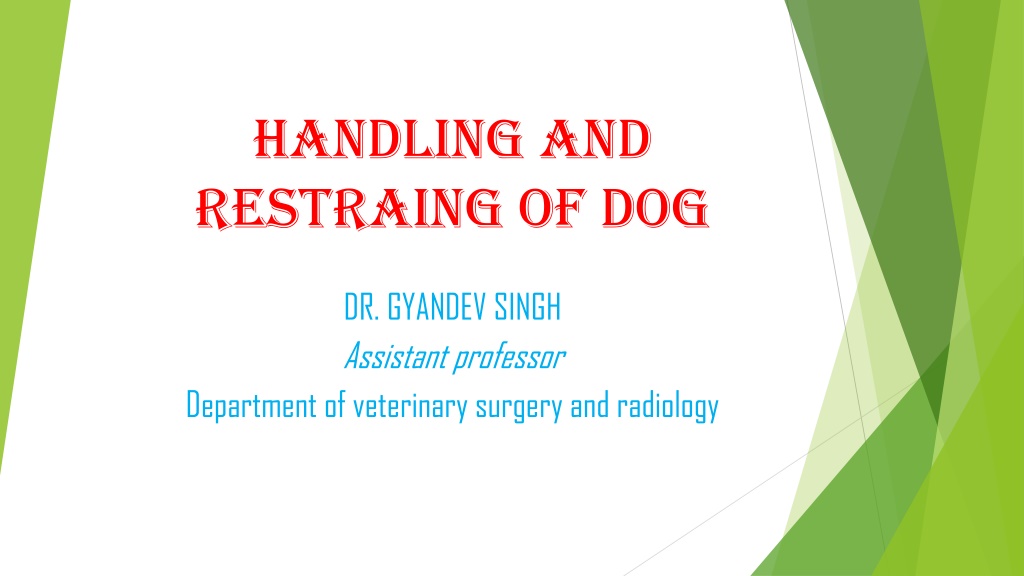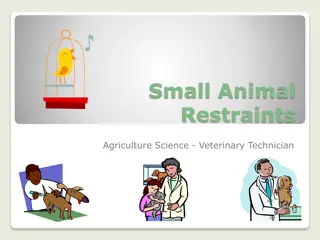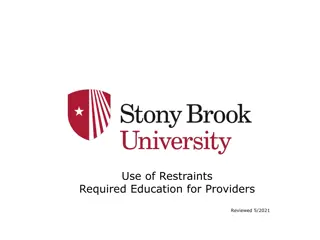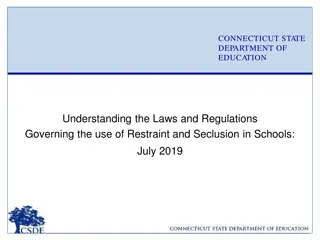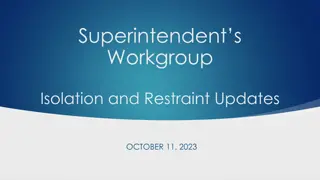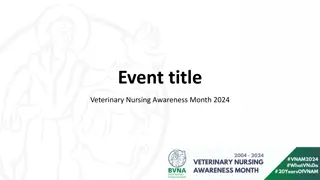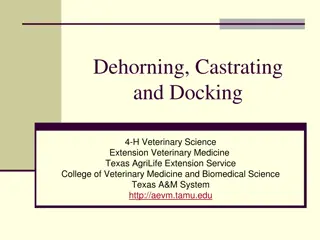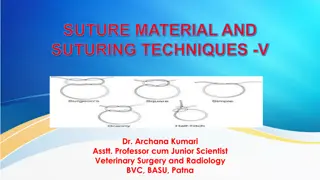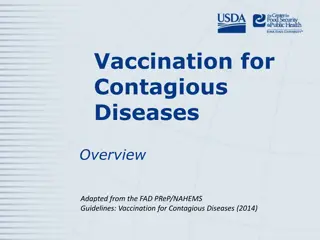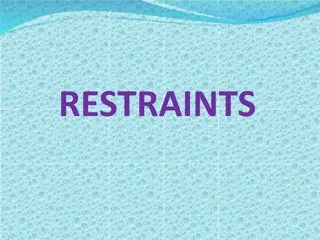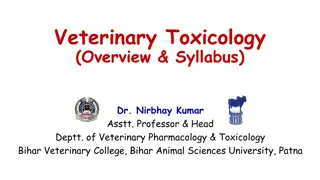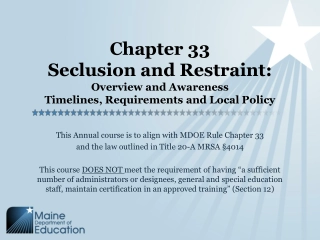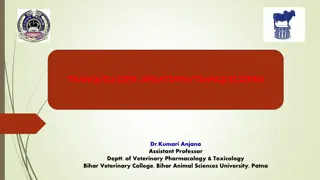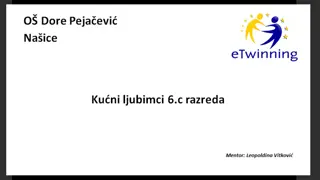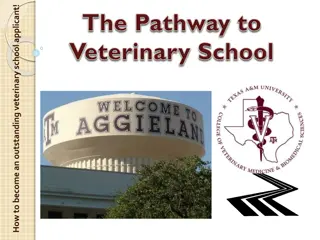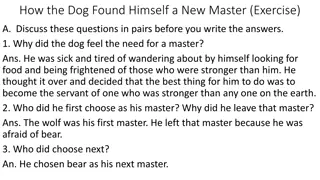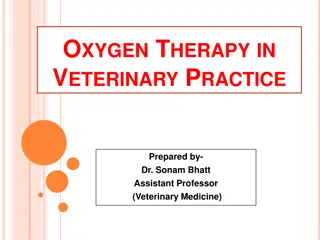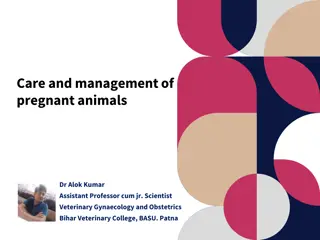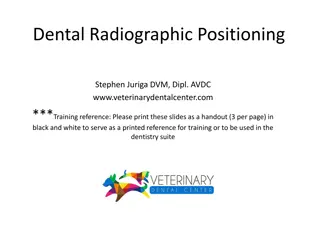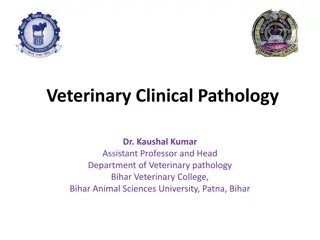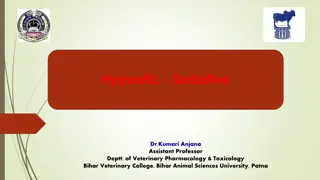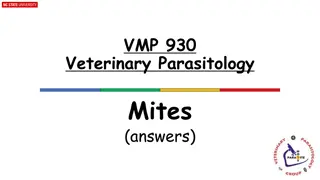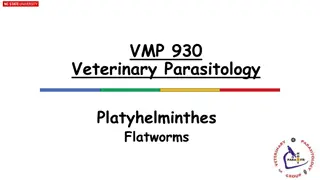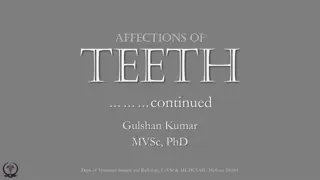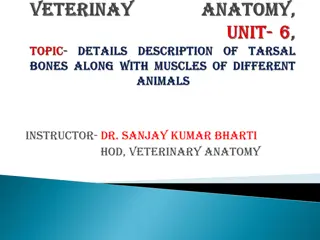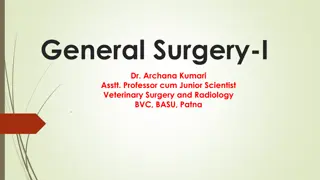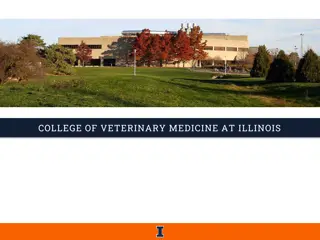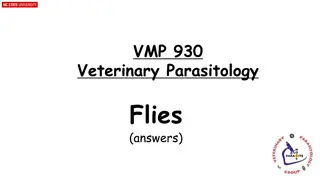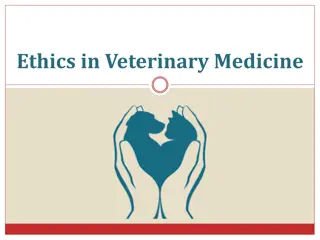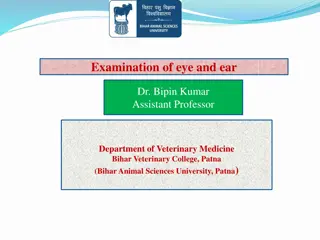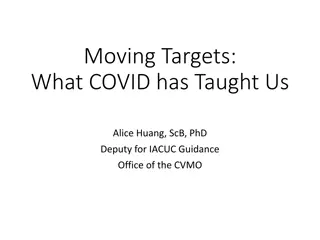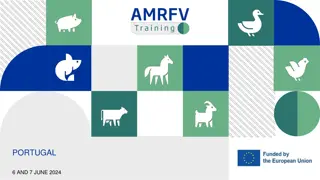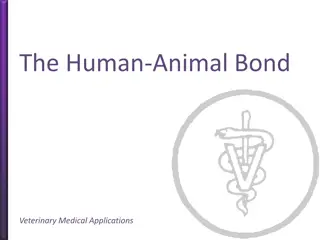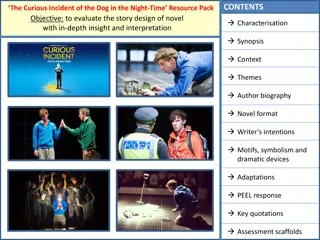Dog Handling and Restraint Techniques in Veterinary Practice
Learn about the importance of proper handling and restraining techniques for dogs in veterinary settings, including physical equipment like shock collars, noose leashes, muzzles, and Elizabethan collars. Discover different restraining positions for procedures like venipuncture and understand the potential complications associated with improper restraint, such as trauma and metabolic disturbances.
Download Presentation

Please find below an Image/Link to download the presentation.
The content on the website is provided AS IS for your information and personal use only. It may not be sold, licensed, or shared on other websites without obtaining consent from the author. Download presentation by click this link. If you encounter any issues during the download, it is possible that the publisher has removed the file from their server.
E N D
Presentation Transcript
HANDLING AND RESTRAING OF DOG DR. GYANDEV SINGH Assistant professor Department of veterinary surgery and radiology
Purpose of restraining- WOUND DRESSING
Restraining [physical] equipments used for dogs- Shock collor
Elizabethan collar- types of collar . Plastic . soft fabric .inflatable .cervical .avian spherical medical reason for e. collar- .injury or surgery .allergies or flea treatment .virus and fungus
Restraining of dog in different position- It include- 1.restraint of dog in sitting position 2.restraint of dog in standing position 3.restraint of dog in lateral recumbency 4.restraint and positioning for cephalic venipuncture 5.restraint and positioning for saphenous venipuncture 6.restraint and positioning for jugular venipuncture
11 2 4 3
Complication of restraint- Trauma ,including contusion ,bruising,laceration,and nerve paralysis Metabolic disturbances such as acidosis ,hypoxia ,hypocalcemia hyperglycemia . Hyperthermia Regurgitation Emotional stress
